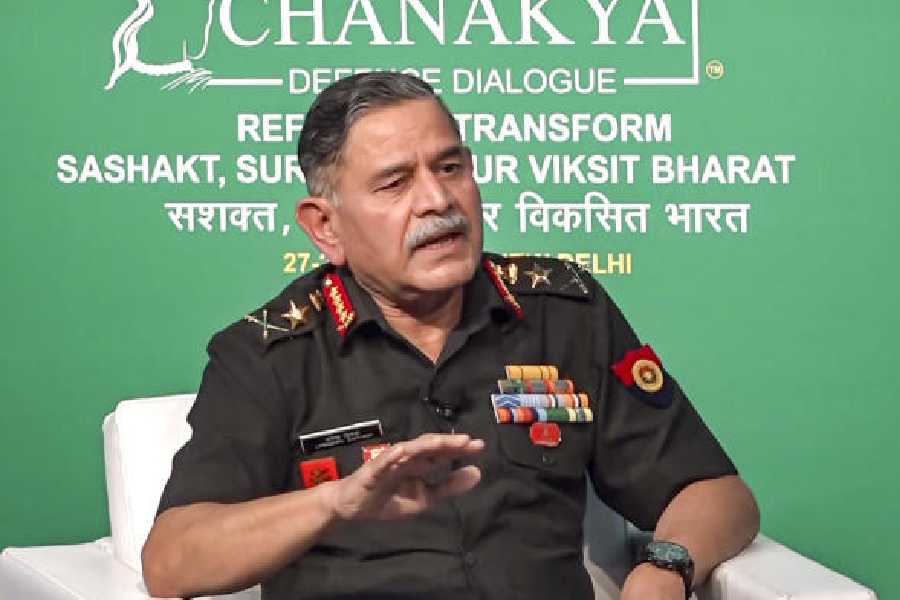India’s army chief on Monday said that Operation Sindoor had been “just a trailer” and the country was fully prepared for future challenges, the warning coming a week after the Red Fort car bombing that killed 13 people.
“Operation Sindoor (against terror groups based in Pakistan and PoK) was just a trailer which ended in 88 hours. We are prepared for any circumstances in future,” General Upendra Dwivedi said at the Chanakya Defence Dialogues in Delhi.
“If Pakistan gives a chance, we will teach it how to behave responsibly with a neighbouring nation.”
The Narendra Modi government, which had conducted Operation Sindoor after the Pahalgam attack and said future acts of terror against India would also evoke a strong response, has so far not officially blamed Islamabad for the Delhi car blast.
But sources in the security establishment have linked the bombing to the Pakistan-based Jaish-e-Mohammed terror group.
“All we are asking is to adopt a peaceful process, which we will cooperate with. Until then, we will treat terrorists and their sponsors alike,” Dwivedi said.
“We will respond to those who encourage terrorists. Today, India is so accomplished that it is not scared of any blackmail attempts.”
Pakistan defence minister Khawaja Asif had last week declared that Islamabad was “fully prepared” for a two-front war against India and Afghanistan’s Taliban government.
His statement had followed a blast in Islamabad that killed 12 people and came a day after the November 10 Delhi car explosion. Pakistan has accused India of “backing” what it said was an Afghan-led suicide bombing.
Underscoring how India had “set a new normal” after the April 22 Pahalgam attack, Dwivedi said: “When a country encourages state-sponsored terrorism, it becomes a matter of concern for India.
“India talks about progress. If someone creates obstacles in our course, then we will have to take some action against them. When we talk about the new normal, we have said that talks and terror can’t go together.”
On the lessons learnt from Operation Sindoor, Dwivedi underlined three points — integration between the forces, ensuring proper supplies for a drawn-out battle, and ensuring that decisions are taken at every level of the command chain.
“Whenever some operation happens, we learn from it. This time too we learned things. One of the things we learned was that we have very less (sic) time to make any decision, and take a decision at every level on time,” he said.
Stressing integration among the forces, the army chief said “today’s battles are multi-domain”.
“Just the army cannot fight a battle, everyone has to fight together,” he said, and referred to the air force, navy and central paramilitary forces.
A day after the Red Fort explosion, Prime Minister Modi had pledged to punish the “conspirators” but stopped short of naming any suspects or labelling the explosion a terror attack.
The government eventually termed it a “heinous terror incident” two days after the bombing, although a case had been registered under the anti-terror law UAPA and the probe handed over to the National Investigation Agency, which exclusively investigates terrorism.
Investigators have said the alleged suicide bomber, Dr Umar un Nabi, was part of an “interstate and transnational white-collar terror module” linked to Jaish and the Ansar Ghazwat-ul-Hind.










